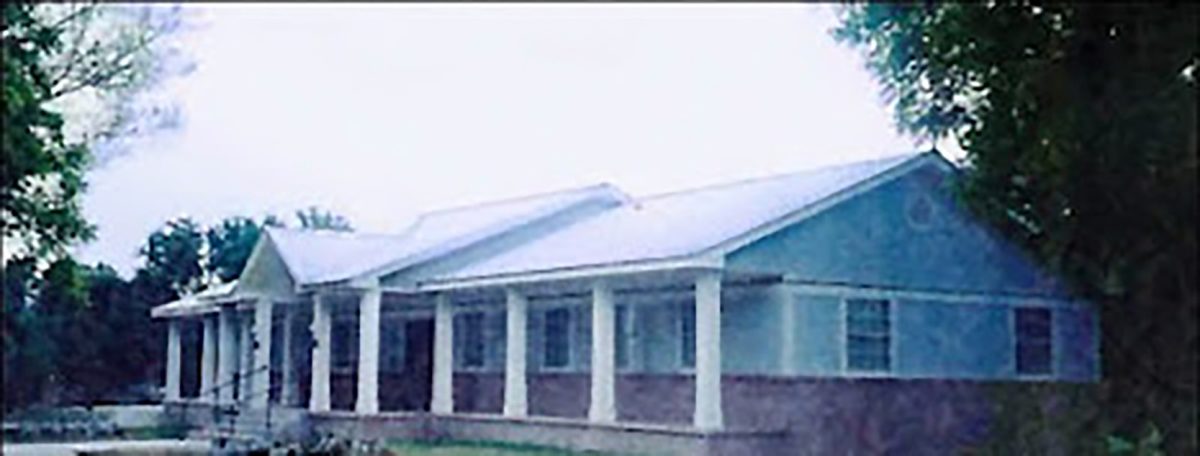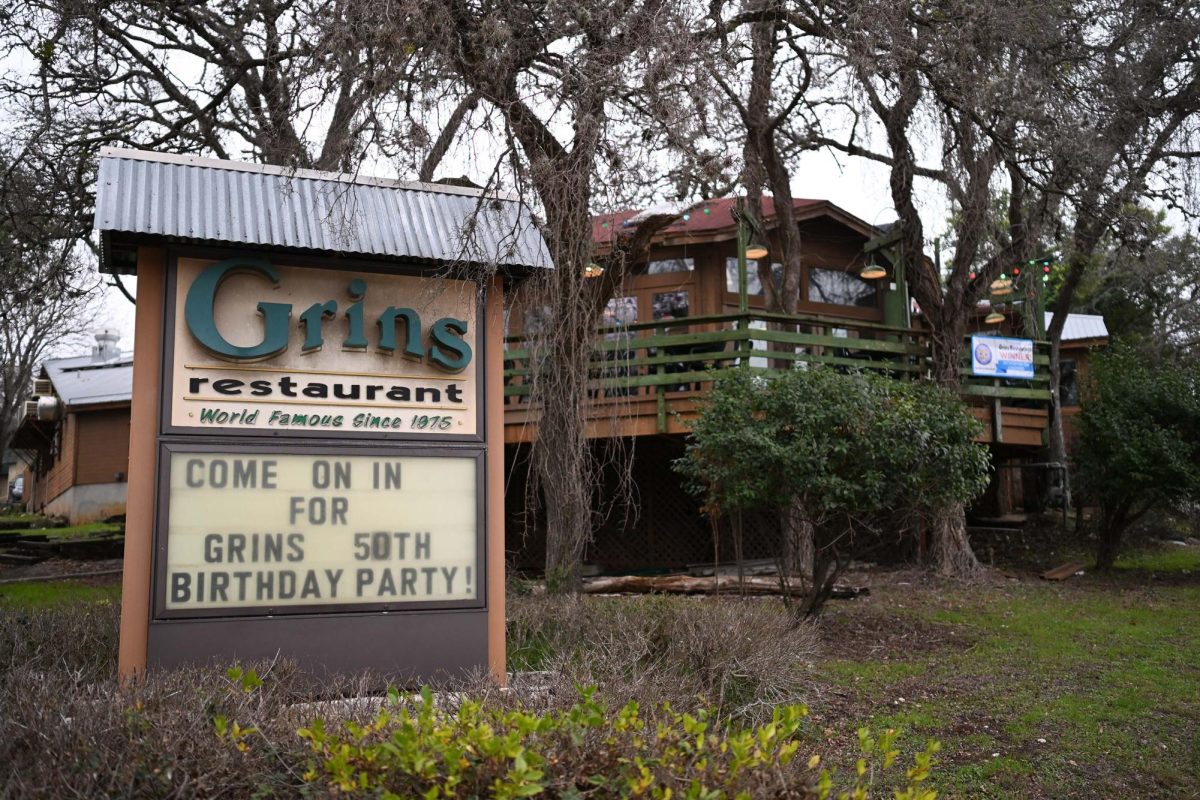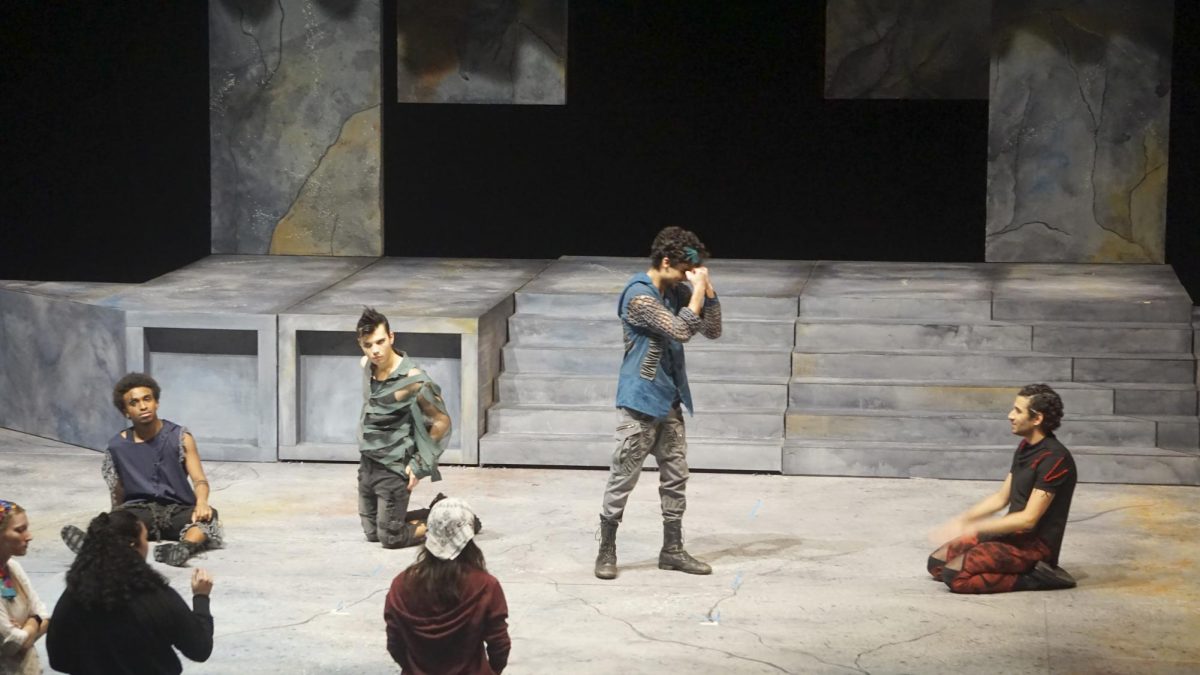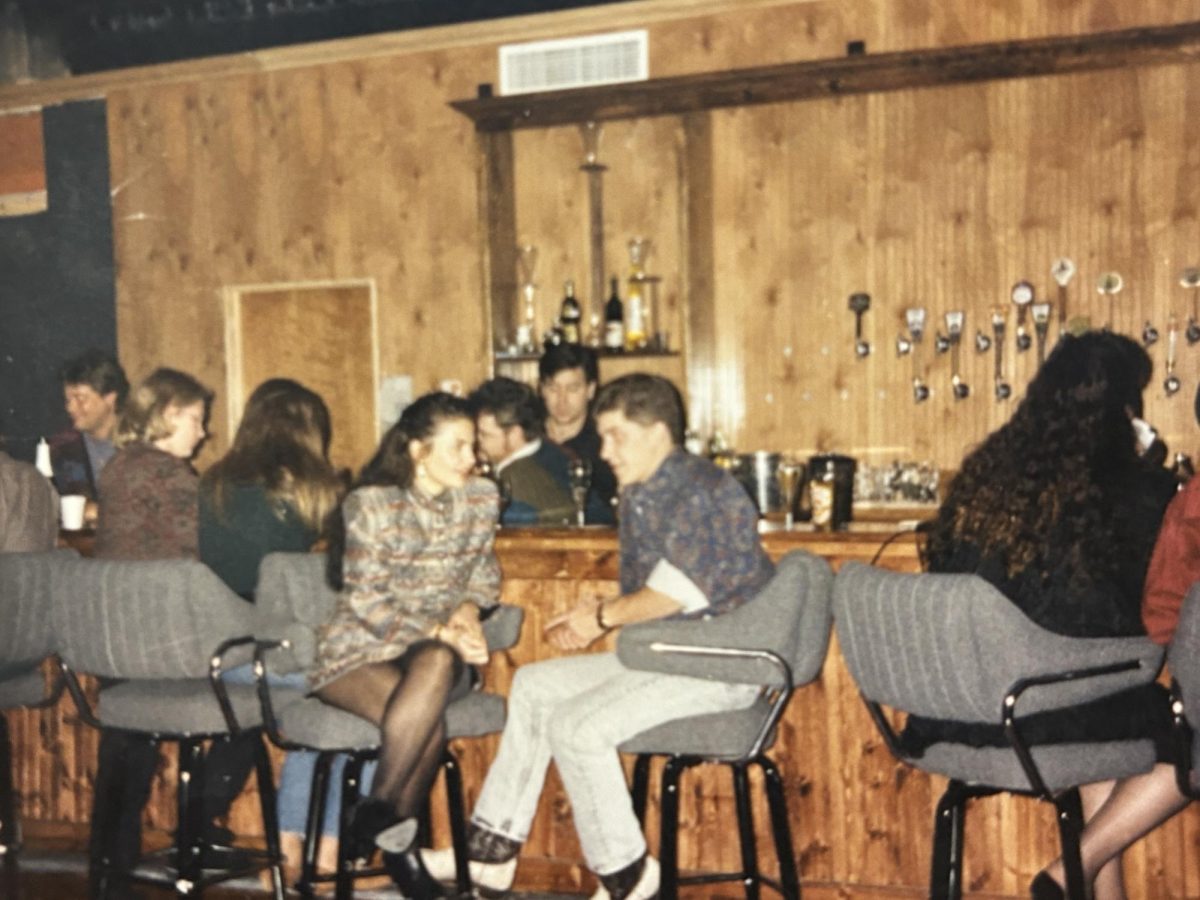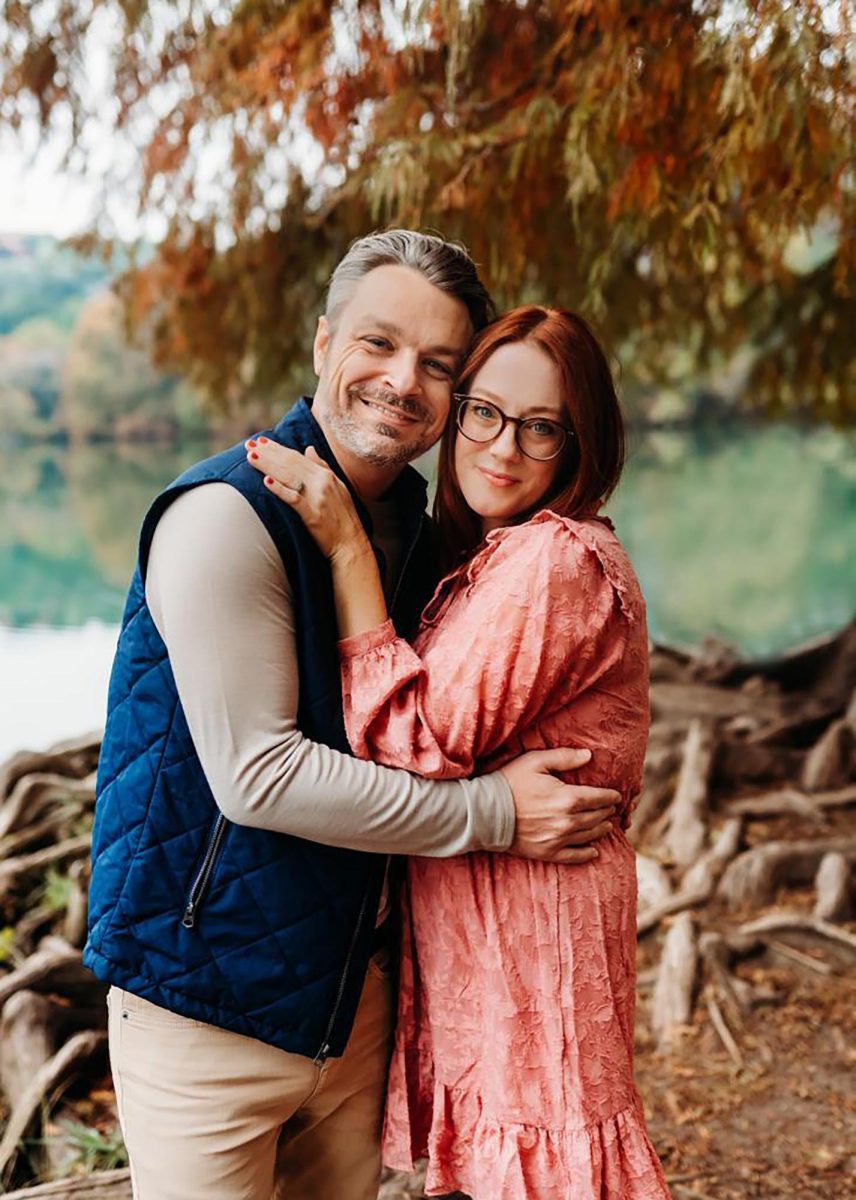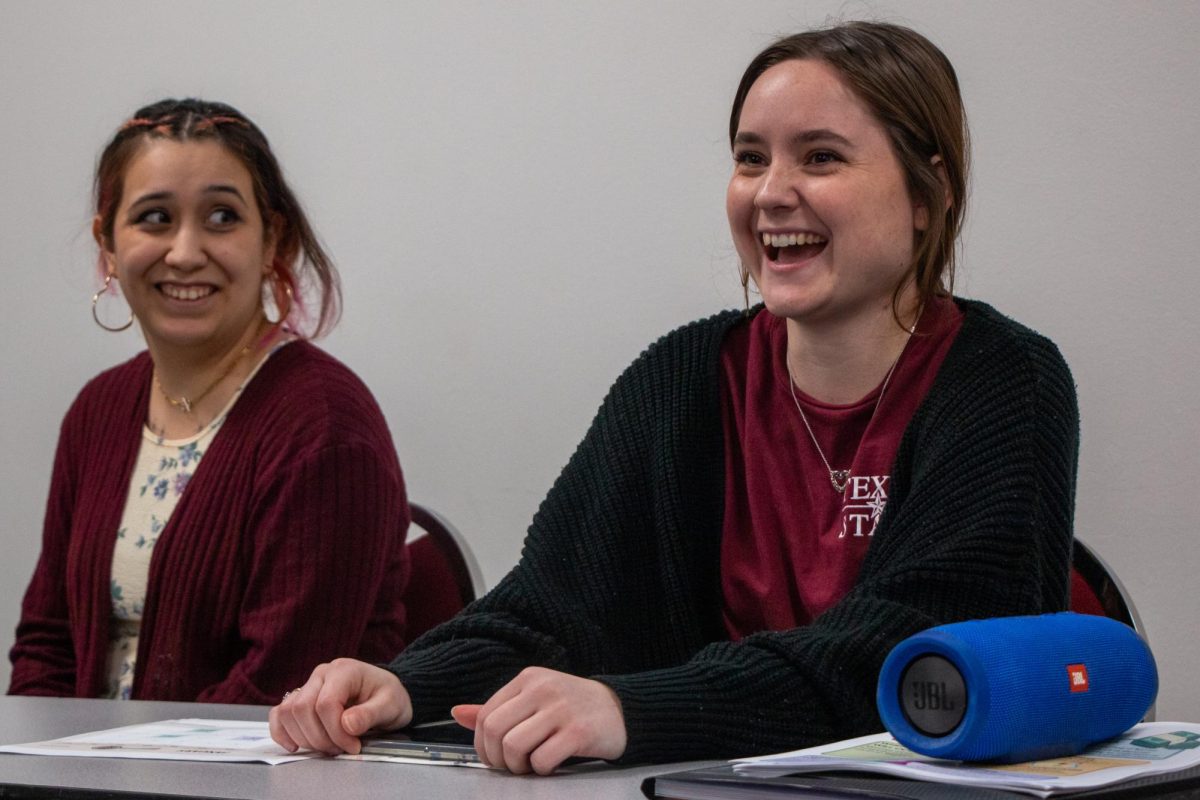Photographer’s exhibition marks 34 year anniversary with Wittliff display
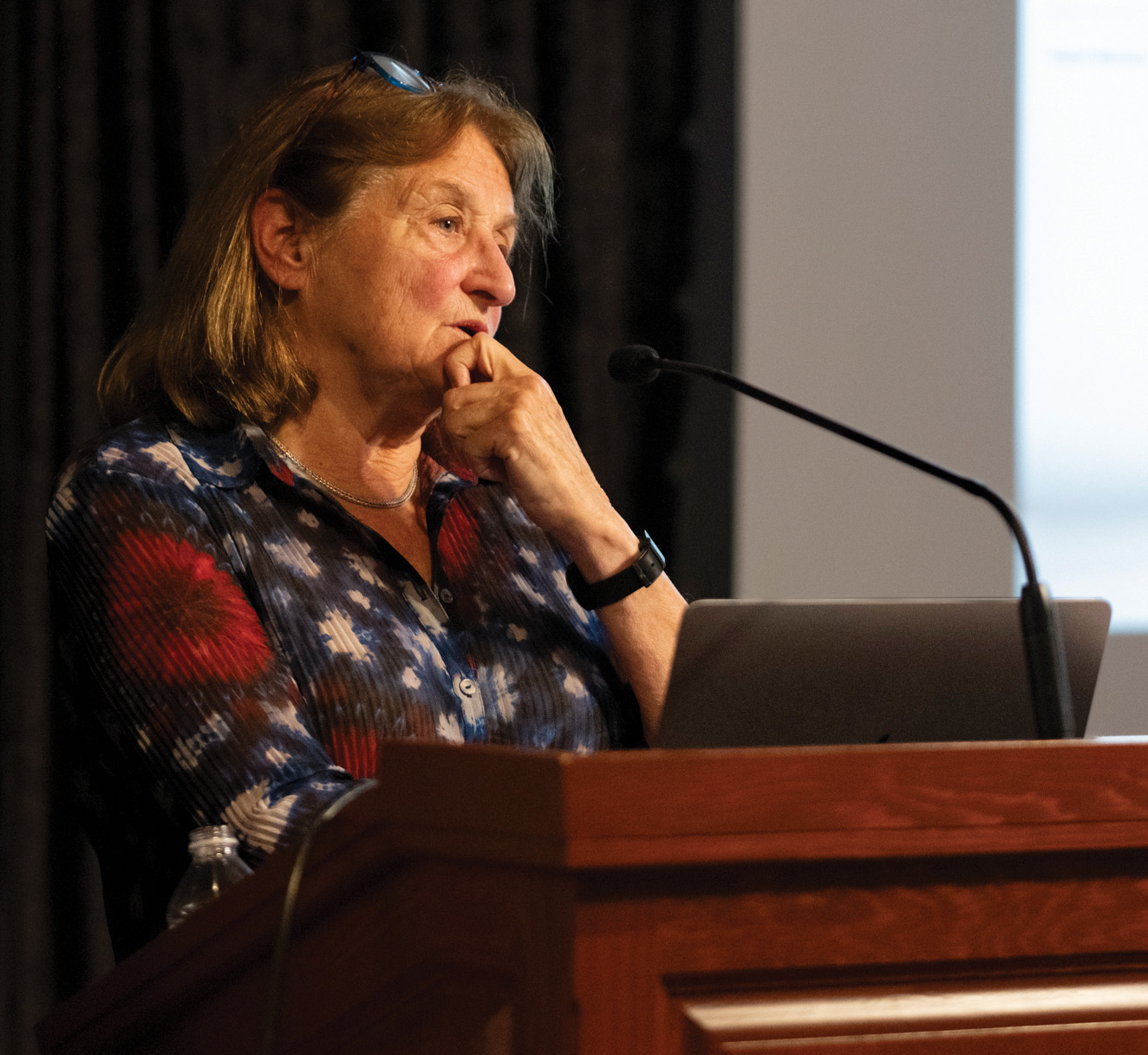
When Susan Meiselas’ exhibit, “Crossings,” first opened at the Art Institute of Chicago in 1990, it captured national attention.
Juxtaposing images of hostile exchanges between migrants and border patrol in California in 1989 with stirring scenes of war-torn Central America made during the 1970s and 1980s, the exhibit shed light on the role the U.S. played in fueling Central America’s prolonged displacement. Thirty-four years later, the exhibit embraces a new iteration as “Crossing Borders” on display in the Wittliff Collections.
A collaboration with participatory art and education project, Borderland Collective, “Crossing Borders” motivates viewers to identify connections between the past Meiselas documented and the present lived experiences of youth and their families in border regions of Texas.
In one gallery, the “Crossings” photographs are paired with video clips of “Pictures from a Revolution,” a documentary Meiselas made where she interviews individuals she photographed 10 years prior during the Nicaraguan Revolution. An adjacent gallery contains writing, photographs, and maps made by youth who worked with Borderland Collective.
Jason Reed, Borderland Collective co-founder, said the sightlines between the two galleries challenge viewers to make connections between them and see multiple layers of the migration experience.
“In the contrast between our work a truth emerges about migration — it is not a binary, Black and white experience but one full of nuance and gradation,” Reed said.
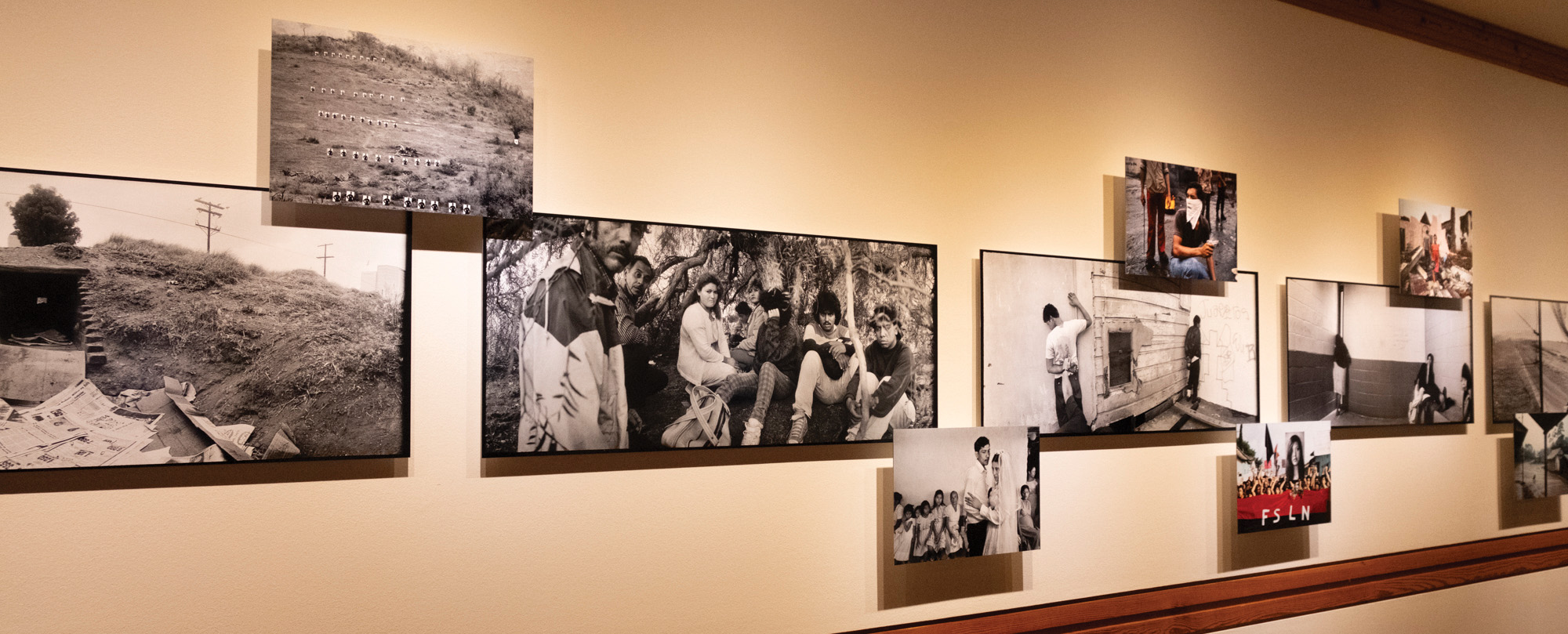
In a lecture with students and faculty from the School of Art and Design on Oct. 8, Meiselas discussed the driving questions, impulses and lessons that shaped her career, offering pertinent history behind “Crossing Borders.”
Early projects, such as “Carnival Strippers,” enabled Meiselas to cultivate a documentary practice — a way of working with people that involved “staying, returning and building relationships” — that became integral to her process of later working in Central America and a defining feature of her work.
Throughout the journey of her experiences photographing the Nicaraguan revolution, social and political unrest in other Central American countries, experiences of migration in California and projects outside of a Latin American context, Meiselas shared highlights about her experiences. She discussed the ethical complexities of photography, the evolution photographs can undergo and the role photographs play in shaping history.
At the close of her lecture, she invited the audience to participate in shaping history.
“With Crossings, these frames are pulled out of my archives,” Meiselas said. “They’re fragments, and I’m trying to bring them into a history of being made with you, today. I’m hoping you will make associations. I’m hoping you will ask questions. For me, it’s still re-visiting. It’s still carrying the past forward, thinking about photographs as documents of a historical process.”
Francesca Garza, photography senior, praised Meiselas’s lecture, noting the importance of her work and how her photographs have informed viewers.
“I felt so moved after listening to Susan Meiselas talk and seeing her exhibit… she has captured the gravity of dangerous situations,” Garza said. “She has documented important parts of history we would not have known or seen.”
Reed expressed hope for what the joint exhibitions might accomplish. He said he hopes the university community can engage in dialogue about building a future that values solidarity with migrant communities.
“I hope viewers feel the great trauma and devastation that conflict brings and the immense resilience and joy that is built despite this trauma,” Reed said. “I hope the exhibition is a catalyst for viewers to begin thinking about border and migration issues in ways that challenge the destructive narrative of us versus them.”
“Crossing Borders” will be on display through Feb. 26 at the Wittliff Collections.
Your donation will support the student journalists of Texas State University. Your contribution will allow us to purchase equipment and cover our annual website hosting costs.






